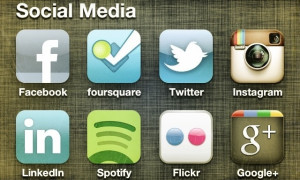Good morning,
It seems like every day technology changes in some way. It’s hard to keep up! This article from iaap helps us to understand social media lingo. Read it below.
“Understanding Social Media Lingo
Submitted by Julie Perrine on Wed, 07/16/2014 – 8:55am
- Blog: Originally created from the words “web log,” a blog is a website with dated entries, also known as posts, that an author publishes online.
- Circles: Groups of people you follow on Google+ that you can break down into categories, such as friends, family, colleagues, etc.
- Comment: A response to a blog post or social media message.
- Connections: Connections are people you choose to connect with via the LinkedIn social media network. (To learn more about how LinkedIn can benefit administrative professionals, click here.)
- Fans: The people who like a company or organization’s page on Facebook.
- Follow: When you follow someone on Twitter, you’re choosing to see his or her tweets in your Twitter feed. Conversely, someone who follows your tweets is called a follower.
- Friends: The people you allow to interact with you and view your Facebook profile.
- Groups: These are sets of people on LinkedIn and Facebook that share a common interest. For instance, you can join a LinkedIn group for administrative professionals.
- Hangout: A Google+ feature that allows up to 10 users to chat via video.
- Hashtag: A word or phrase that’s preceded by a # sign, which makes the word or phrase searchable. Hashtags originated on Twitter but are now also used on Facebook and LinkedIn.
- HootSuite: This is a free social media aggregator that allows you to manage multiple social media accounts and posts from one place. (Click here to sign up for your own Hootsuite account.)
- Homepage: The landing page when you log into your LinkedIn account that includes a digest of posts from your connections.
- Like: Most commonly associated with Facebook, but also used on LinkedIn, a like is a way to recommend or agree with a social post.
- Lists: Lists are one of the best ways for navigating Twitter. Lists allow you to create categories for your followers, instead of having to keep track of who goes with what group.
- Newsfeed: The landing page when you log into your Facebook account that includes a digest of posts from your friends.
- Post: A comment, question, image or link that you put on your page or your connection’s social media page.
- Profile: This is the form or questionnaire you fill out when joining a social media site. It typically includes fields for your name, job title, company, hobbies, location, school, etc. Your profile also typically includes a picture or pictures of yourself.
- RSS: An acronym for Really Simple Syndication, RSS is a program that lets you read subscription content from one feed rather than going to multiple sites.
- Thread: Conversations on social media grouped by post.
- Tweet: A Twitter update that consists of 140-characters or less. A shared tweet is called a retweet.
- Wall: This is the public page of your Facebook account where you and your friends can add posts. It’s also where friends can view your profile information.






